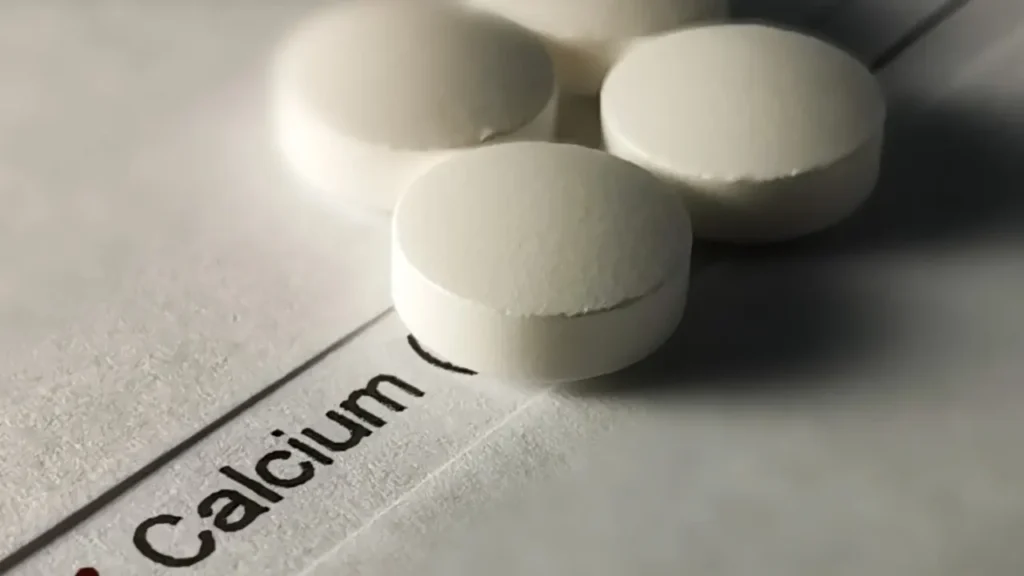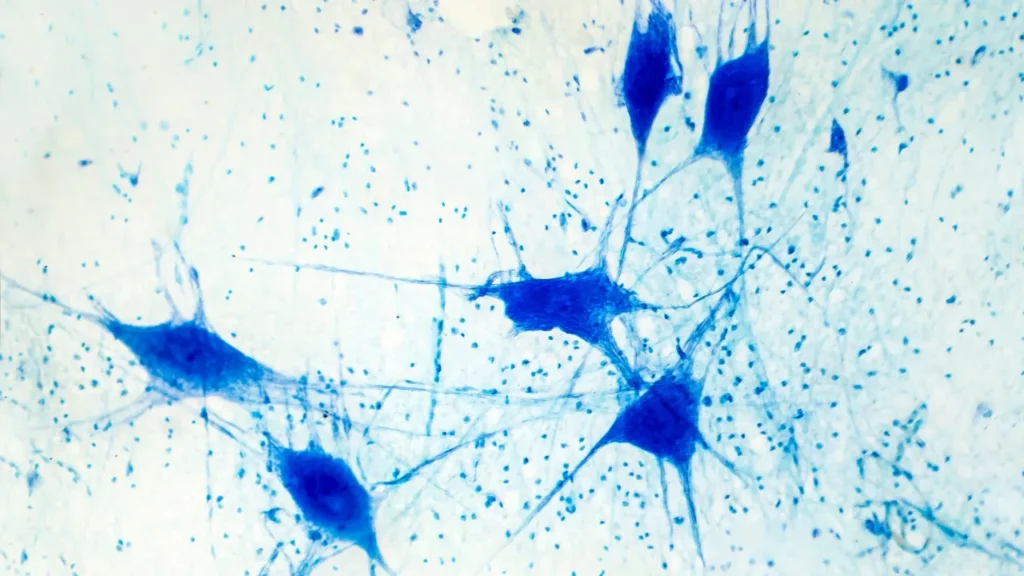The scientific community and the general public have long been drawn to shark cartilage due to its alleged health advantages, especially in the context of nootropic supplements, which are compounds that may enhance motivation, creativity, memory, or cognitive function in healthy individuals. For those looking to improve alertness, focus, and cognition—as well as provide an in-depth analysis of the chemistry of shark cartilage and the physiological mechanism of its action on the body and brain—this article explores the nature of shark cartilage, its health benefits, optimal dosage, side effects, and potential substance interactions.
You May Also Like:
CBD for Concentration: 3 Epic Benefits that Boost Your Focus
Dr Emil Nutrition Lion’s Mane Reviewed: A Leading Nootropic Mushroom Product
Shark Cartilage: Benefits, Dosage, Side Effects, Drug Interactions, and Other Important Information is an original (NootropicsPlanet) article.
Nature of Shark Cartilage
Shark skeletons, which are entirely composed of cartilage rather than bone like those of mammals, are the source of shark cartilage. Proteins, calcium salts, and glycosaminoglycans (GAGs) comprise most of this cartilage. One of the main GAGs in shark cartilage is chondroitin sulfate, which may be responsible for some health advantages. Shark cartilage is sold in various forms, such as extracts, pills, and powders, and it’s frequently promoted as having immune-stimulating, anti-inflammatory, and antiangiogenic qualities.
Health Benefits of Shark Cartilage
Shark cartilage’s purported health advantages have generated scientific interest and discussion because of its unusual makeup and the possible therapeutic benefits of its bioactive components. While anti-inflammatory, antiangiogenic, and immune-modulatory characteristics are the most well-known claims about shark cartilage, it’s important to examine these assertions, especially concerning particular medical disorders and general wellness.
Anti-inflammatory Effects
Shark cartilage is known for its ability to reduce inflammation, a fundamental process linked to various chronic disorders such as cardiovascular diseases, inflammatory bowel disease, and arthritis. One theory is that the anti-inflammatory properties of shark cartilage stem from the presence of glycosaminoglycans (GAGs), specifically chondroitin sulfate. Inhibiting the action of enzymes that break down cartilage and other connective tissues is one way chondroitin sulfate can reduce inflammation and possibly offer relief to people with joint illnesses like osteoarthritis.
Antiangiogenic Properties
The potential of shark cartilage to prevent the growth of new blood vessels, or antiangiogenic qualities, has been the subject of much research. This process, called angiogenesis, is essential for developing and disseminating tumors because cancer cells need blood flow to obtain oxygen and nutrients. Researchers have looked into the possibility of using the antiangiogenic substances present in shark cartilage—such as a particular protein fraction called neovastat—to starve tumors by preventing the growth of new blood vessels. It’s crucial to remember that there is conflicting data on shark cartilage’s efficacy as a cancer treatment, with some research failing to show appreciable advantages.
Immune System Modulation
It’s also possible that shark cartilage has immune-modulating properties that could strengthen the body’s defenses against infection. Shark cartilage components may affect how different immune cells function, which could strengthen the body’s defenses against illnesses and infections. Shark cartilage modulates the immune system; the exact mechanisms are unknown, but it may be because of the diverse array of proteins and polysaccharides it contains. These may interact with immune cells to improve their performance.
Support for Joint and Bone Health
Shark cartilage has a high collagen and chondroitin sulfate content, which makes it a popular choice for joint and bone health support. The durability and integrity of bone and cartilage tissue depend on these elements. It is suggested that taking supplements containing shark cartilage on a regular basis helps to maintain healthy joints and may even help to reduce joint disease symptoms like pain and stiffness. Furthermore, shark cartilage contains calcium, which may enhance bone density. However, more research is needed to determine calcium’s bioavailability and usefulness in relation to other sources.
Potential Nootropic Effects
Although shark cartilage has not been known to offer cognitive benefits, some proponents claim it may have nootropic effects that improve alertness, focus, and cognition. The anti-inflammatory and nutritious qualities of shark cartilage may lead to better brain function and health, which may explain this hypothetical advantage. Lowering inflammation in the brain may help with age-related and neurodegenerative disease-related cognitive loss. More research is needed to investigate this potential fully, as there is now insufficient direct data to support shark cartilage’s potential cognitive benefits.

Chemistry of Shark Cartilage
Shark cartilage has a complicated chemical makeup, but it stands out for having a wide range of physiologically active ingredients that support the health advantages that have been suggested. Shark cartilage is mainly composed of proteins, minerals, and glycosaminoglycans (GAGs), with a notable concentration of collagen and chondroitin sulfate.
Proteins and Collagen: Shark cartilage is a rich source of proteins, including various types of collagen, which is the main structural protein found in the extracellular space in various connective tissues. The presence of types I, II, and III collagen in shark cartilage is particularly noteworthy. Collagen provides structural support to the cartilage and is essential for its elasticity and strength. The amino acids in collagen, such as glycine, proline, and hydroxyproline, play crucial roles in forming collagen triple helix structures, contributing to the physical properties of shark cartilage.
Glycosaminoglycans (GAGs): Among the GAGs in shark cartilage, chondroitin sulfate stands out for its potential health benefits. Chondroitin sulfate is a complex carbohydrate that helps retain water in the cartilage, providing lubrication and shock absorption. It also modulates enzymatic activities that degrade cartilage components, suggesting a protective role in joint health.
Minerals: Shark cartilage contains various minerals, with calcium being a significant component. The calcium salts in shark cartilage contribute to its structural integrity and might influence the biological activities associated with its consumption.
Physiological Mechanism of Action
The physiological effects of shark cartilage on the body and brain, particularly in the context of its use as a nootropic supplement, are not entirely understood. Multiple mechanisms of action are thought to involve them, but these are speculative and based on the known properties of shark cartilage’s chemical constituents.
Anti-inflammatory Effects: The anti-inflammatory properties of shark cartilage may be attributed to its ability to modulate the immune system’s response. Components such as chondroitin sulfate can inhibit the production and activity of enzymes and cytokines that promote inflammation. This anti-inflammatory action could potentially benefit brain health by reducing neuroinflammation, which has been linked to various cognitive impairments.
Antiangiogenic Effects: Shark cartilage is believed to possess antiangiogenic properties, which can inhibit the formation of new blood vessels. This mechanism is primarily explored in cancer research but may also have implications for brain health. By modulating angiogenesis, shark cartilage could influence the vascularization of brain tissues, potentially affecting cognitive functions. However, the direct impact of antiangiogenic effects on cognition and brain health remains speculative and requires further investigation.
Nutritional Support: Shark cartilage’s nutritional components, including proteins, amino acids, and minerals, may support brain health by providing essential nutrients necessary for maintaining the structure and function of neural cells. Adequate nutrition is crucial for cognitive processes, and the specific components of shark cartilage could contribute to this nutritional support, albeit indirectly.

Optimal Dosage of Shark Cartilage
Shark cartilage dosage is difficult to determine because standardized extracts are hard to come by, and product quality varies widely. There is no standard dose for any given illness, and study dosages have been very different from one another. When contemplating shark cartilage supplements, consumers are urged to adhere to product guidelines or seek advice from healthcare specialists.
Side Effects of Shark Cartilage
When taken orally in modest doses, shark cartilage can cause nausea, vomiting, constipation, and an odd taste. However, most people are generally considered safe when taking it this way. More severe adverse effects, notably elevated blood calcium levels (hypercalcemia), have been observed seldom; the high calcium content of shark cartilage probably causes them.

Potential Substance Interactions with Shark Cartilage
Anticoagulants and antiplatelet drugs may interact with shark cartilage, possibly raising the bleeding risk. This is due to compounds in shark cartilage that may, theoretically, prevent blood coagulation. Furthermore, because shark cartilage contains calcium, it may interact with drugs that lower or raise calcium levels in the body, such as calcium channel blockers. Anyone taking medication must consult a healthcare professional before using shark cartilage supplements.
Best Responsible Uses of Shark Cartilage
If you’re interested in using shark cartilage as a nootropic supplement, it’s important to use it carefully. This entails choosing reliable producers of high-quality products, following dosage recommendations, and speaking with medical specialists, particularly for people taking other medications or having pre-existing health concerns.
Shark Cartilage:
Conclusion
While shark cartilage has been explored for its potential health benefits, particularly in cancer treatment and joint health, the available scientific evidence remains inconclusive. Initial studies suggested that shark cartilage might have anti-cancer properties and could alleviate joint-related conditions due to its purported anti-inflammatory and analgesic effects. However, subsequent research has failed to validate these claims consistently, and some studies have even shown negligible or limited efficacy.
Moreover, concerns regarding the sustainability of harvesting shark cartilage and ethical considerations surrounding the practice have also come to light. As such, while shark cartilage continues to interest researchers and alternative medicine practitioners, its use as a therapeutic agent should be approached with caution. Further rigorous clinical trials are necessary to elucidate its true efficacy, safety profile, and optimal dosage. In the meantime, individuals seeking relief from cancer or joint-related issues are encouraged to explore other evidence-based treatment options under the guidance of healthcare professionals.

References:
- Shark Cartilage – Uses, Side Effects, and More. Retrieved from:https://www.webmd.com/vitamins/ai/ingredientmono-909/shark-cartilage
- Shark cartilage contains inhibitors of tumor angiogenesis. Retrieved from: https://pubmed.ncbi.nlm.nih.gov/6193581/
- Shark Cartilage: Prototype Monograph Summary. Retrieved from: https://www.ncbi.nlm.nih.gov/books/NBK216050/
Important Note: The information contained in this article is for general informational purposes only, and should not be construed as health or medical advice, nor is it intended to diagnose, prevent, treat, or cure any disease or health condition. Before embarking on any diet, fitness regimen, or program of nutritional supplementation, it is advisable to consult your healthcare professional in order to determine its safety and probable efficacy in terms of your individual state of health.
Regarding Nutritional Supplements Or Other Non-Prescription Health Products: If any nutritional supplements or other non-prescription health products are mentioned in the foregoing article, any claims or statements made about them have not been evaluated by the U.S. Food and Drug Administration, and such nutritional supplements or other health products are not intended to diagnose, treat, cure, or prevent any disease.


